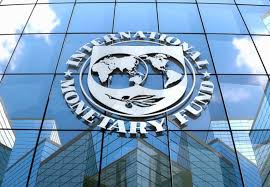
Algeria’s economy shows signs of recovery, but the International Monetary Fund (IMF) has cautioned that structural weaknesses leave the country vulnerable to external shocks, according to its latest annual report.
The 99-page document highlights “robust non-hydrocarbon growth” and a “comfortable” level of foreign exchange reserves, presenting an optimistic post-pandemic picture. Inflation fell sharply from 9.3% in 2023 to 4% in 2024, approaching levels seen in some developed economies.
Non-hydrocarbon growth, estimated at 4.2%, has been driven largely by public investment and rising private consumption, which the IMF describes as signs of “healthy growth” propelled by domestic demand.
The report also notes Algeria’s financial cushion, with international reserves of $67.8 billion (€62.5 billion) at the end of 2024, covering 14 months of imports. Coupled with the absence of external debt, this position is seen as a source of financial independence.
However, the IMF warned that these positive indicators mask persistent vulnerabilities.
The economy remains heavily reliant on hydrocarbons, which continue to supply the bulk of budget revenues and foreign exchange. “Dependence on oil and gas revenues remains a recurring Achilles’ heel, making the economy susceptible to price fluctuations,” the report stated.
To address these risks, the IMF recommended diversifying the tax base, digitizing public finance management, and exploring alternative financing tools, including Islamic financing.
It also pointed out that non-hydrocarbon growth is still largely driven by government spending rather than autonomous entrepreneurial activity. The business climate remains unattractive, and insufficient structural reforms continue to hinder private and foreign investment.
The report also acknowledged Algeria’s efforts to remove itself from the Financial Action Task Force (FATF) grey list, but stressed that further measures are needed to fully meet international standards.
While the IMF praised Algeria’s macroeconomic resilience and growth recovery, it emphasized that lasting stability will require reducing dependence on hydrocarbons and implementing deeper structural reforms to support private sector development and safeguard against external shocks.



